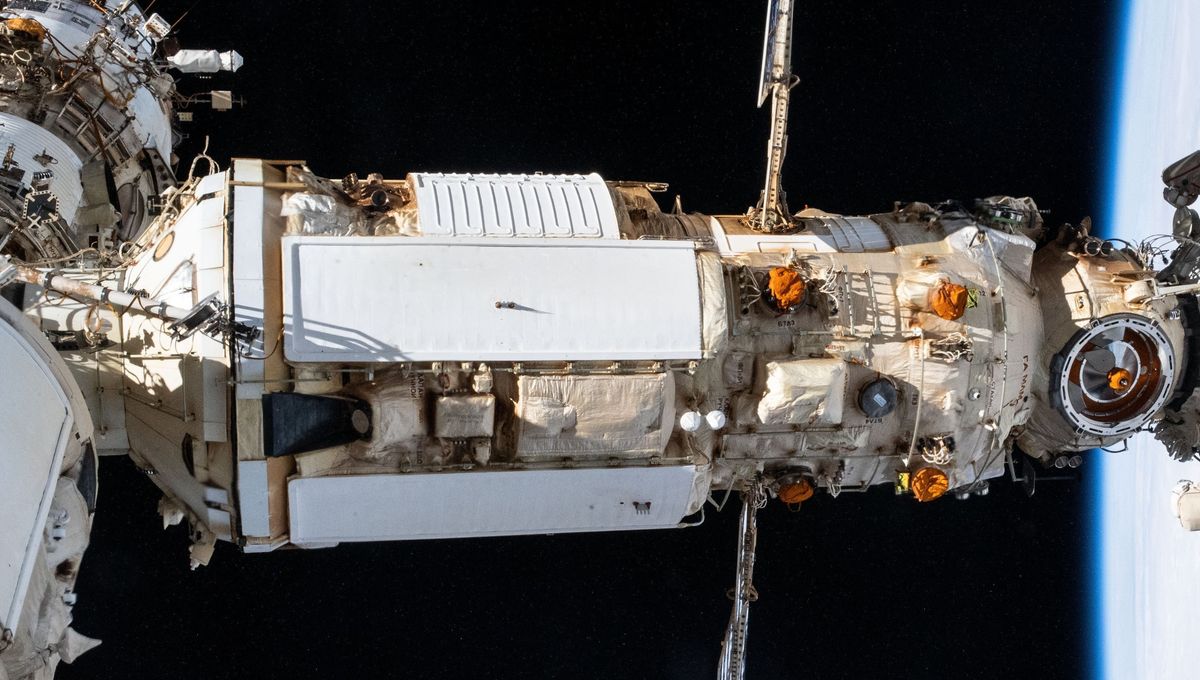
Yesterday afternoon, NASA flight controllers spotted something floating around the International Space Station (ISS). Flakes of frozen coolant were seen on the cameras spreading forth from the Russian Nauka module. Following the observations, the leak was confirmed by astronauts on board the space station.
“The flight control team informed the crew aboard the space station of the potential leak, and NASA astronaut Jasmin Moghbeli confirmed the presence of the flakes from the cupola windows, after which the crew was asked to close the shutters on U.S. segment windows as a precaution against contamination,” an update from NASA reads.
Russian space agency Roscosmos confirmed that the leak came from the backup radiator, which is mounted on the outside of the module. The module is a multipurpose laboratory (nauka means science in Russian) and it was brought to the ISS in 2021 after many years of delays. The module’s life attached to the space station did not start well; it malfunctioned after docking, firing its rockets and making the whole station rotate.
The backup radiator for the module was actually launched long before Nauka eventually made its way to orbit. It was brought to space in 2010 and it was installed on Nauka in a spacewalk in April. The space agencies confirmed that the primary radiator is working fine, there is no overheating in the module and the astronauts and cosmonauts are very safe.
“The crew aboard station was never in any danger,” NASA reported.
There are been several leaks from the Russian section of the ISS over the last several years, but just in the last 10 months alone, two Soyuz crafts ended up leaking coolants. One was a cargo vehicle flying in February, and the other was the return capsule for astronaut Frank Rubio and cosmonauts Sergey Prokopyev and Dmitry Petelin.
The spacecraft couldn’t be used, so the three had to stay an extra six months in space, which led to Rubio reaching the milestone of spending the longest time in space of any NASA astronaut and spending over a whole year in space. This new leak shows how so many systems in the ISS, and in the Russian part in particular, are aging.
“Teams on the ground will continue to investigate the cause of the leak, and additional updates will be made as available,” the NASA update concluded.
Source Link: Russian Section Of The ISS Springs Third Leak In A Year